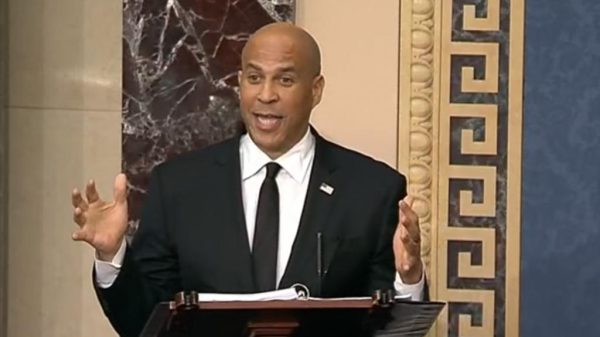In an unexpected twist in international relations, U.S. Representative Buddy Carter from Georgia has introduced a bill that aims to rename the vast Arctic territory of Greenland to ‘Red, White and Blueland.’ This proposal has sparked heated discussions, particularly in light of Greenland’s historical ties to Denmark and its current status.
Unfolding the Proposal
The new legislation, dubbed the “Red, White and Blueland Act of 2025,” reflects a unique and perhaps controversial approach to U.S. global interests. Representative Carter is openly supportive of former President Trump’s ambitions to acquire Greenland, a notion that has been circulating in political conversations since at least 2019. Although no official discussion has taken place between Carter and Trump regarding this bill, it appears to carry Trump’s vision forward for increasing American influence in Arctic territories.
Greenland’s Stance on the Sale
Despite the adventurous name change proposal, the leaders in Greenland, including Prime Minister Mute Egede, have firmly dismissed any notion of the territory being for sale. According to Egede, Greenland is a self-governing territory under the Kingdom of Denmark and is not available for purchase. This governmental resistance further complicates Carter’s proposal, as it indicates strong local opposition. Recent polls show a significant majority—about 85%—of Greenlanders are against joining the United States.
Public Opinion Divided
The introduction of this bill has raised eyebrows because the overwhelming sentiment among Greenland’s population is that they want to maintain their independence. Citizens express concern that a move to join the United States could undermine their sovereignty, with 45% of the populace regarding Trump’s interest more as a threat than an opportunity. Only a small group, merely 6%, supports the idea, indicating a complex and often uncomfortable relationship with American interest.
Implications for U.S.-Denmark Relations
Critics of the proposal, including Danish Members of Parliament, are worried that Carter’s bill could damage the long-standing and friendly relations between the U.S. and Denmark. Danish MEP Anders Vistisen has called the bill “absurd” and has stated that Greenland is not available for sale. Furthermore, Vistisen claims it could inadvertently weaken the U.S. by isolating it from its allies, a significant concern in times of global political uncertainty.
The Legislative Journey Ahead
As with many significant proposals in Congress, the journey ahead for the ‘Red, White and Blueland Act’ remains uncertain. Typically, bills like this go through a committee review before any potential voting can take place. However, many such proposals often get sidelined in the legislative process, with some forgotten altogether. As it stands, Carter’s bill has garnered no cosponsors, which raises questions about its viability and acceptance within Congress.
Understanding the Bigger Picture
The renewed interest in Greenland reflects broader geopolitical discussions surrounding Arctic territories, especially given concerns about Russian and Chinese interests in the region. The Arctic has become increasingly strategic, with nations looking to assert their influence over shipping routes and natural resources. The U.S. involvement in Greenland and similar regions is as much about demonstrating presence as it is about securing resources in these changing times.
Conclusion: Cultural and Political Reflections
Carter’s proposal to rename and potentially acquire Greenland has opened up a fascinating dialogue about national identity, cultural sovereignty, and the complexities of international relations. As this story continues to develop, it will serve as a reminder of the local voices that often get overshadowed in global political conversations. This proposal could have significant implications for not just Greenland, but also for the United States’ relations with Denmark and other nations watching this heated discussion unfold.








































